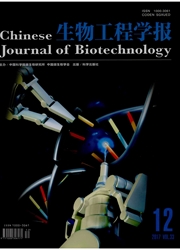

 中文摘要:
中文摘要:
环境问题是21世纪人类面临的最严重的挑战。随着现代工农业飞速发展,生态环境日益恶化,难降解污染物如新兴污染物逐渐显现,已成为制约社会经济可持续发展的重要因素。微生物具有强大的环境修复能力,但是其进化速度远不及新兴污染物出现的速度,亟需应用合成生物学的技术来解决这一难题。在充分认识难降解有机污染物微生物降解(途径)特性的基础上,利用我国丰富的微生物与基因资源,运用合成生物学的手段,定向设计和改造现有降解菌株,构建能够降解一种或多种污染物的工程菌株;同时针对复合型污染,如废水等,在建立典型有机污染物代谢、调控和抗逆相关基因元件的模块库基础上,引入人工菌群等策略,对生物系统进行理性设计和组装,构建典型环境污染物的高效降解菌群,可有效促进我国新兴污染物微生物分解代谢的研究,为环境修复的工程应用提供技术支持。
 英文摘要:
英文摘要:
Environmental problems are the most serious challenges in the 21 st century. With the rapid development of modern industry and agriculture, ecological and environmental deterioration have become the most important factors to restrict the sustainable development of social economy. Microbial cells have strong ability for environmental remediation, but their evolution speed is slower than the speed of emerging pollutants. Therefore, the treatment using the synthetic biology is in urgent need. Full understanding of the microbial degradation characteristics(pathways) of refractory organic pollutants with the help of abundant microbial and gene resources in China is important. Using synthetic biology to redesign and transform the existing degrading strain will be used to degrade particular organic pollutants or multiple organic pollutants. For the complex pollutants, such as wastewater, based on the establishment of metabolic or regulation or resistance related gene modules of typical organic pollutants, artificial flora could be designed to solve the complex pollutants. The rational design and construction of engineering bacteria for typical environmental organic pollutants can effectively promote microbial catabolism of emerging contaminants, providing technical s upport for environmental remediation in China.
 同期刊论文项目
同期刊论文项目
 同项目期刊论文
同项目期刊论文
 期刊信息
期刊信息
